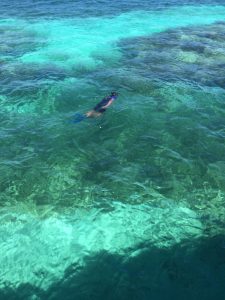
In this article, we will cover what to do and what not to do while scuba diving in order to help inexperienced divers.
What to do:
Slow down – Most Divers want to rush their descent into the deep diving and in doing so make a big mistake. Rushing will scare away any aquatic life that is in your proximity.You will also maximize your air supply and dial in your buoyancy better.
Keep your gaze down – If you are struggling to get down, the best practice is to focus on the space below you and imagine that you are getting heavier and heavier with every breath that leaves your lungs.
Keep a log – no matter if you have 5 or 500 dives under your belt, keeping a log of your dives is a must. It’s not just for documenting your experiences; it is also used to keep track of your gas consumption, weighting and gear. It will also help you in planning your future dives.
What not to do:
Multitasking – It takes some time to get used to a new underwater environment: monitoring your air, buoyancy and positional awareness. Doing too many extra things such as taking pictures while diving will overload your brain and should be avoided while starting out.
Not having your own gear – Having your own personal gear that fits perfectly and that is familiar to you is a good practice. Using unfamiliar gear will put you at risk if something unexpected happens and you don’t know where everything is on your gear.
Not asking around – if you are diving in a new location, you should try talking to some divers who know the location very well. A lot of diving accidents happen because the divers didn’t care to ask if there were any known hazards in the diving area.